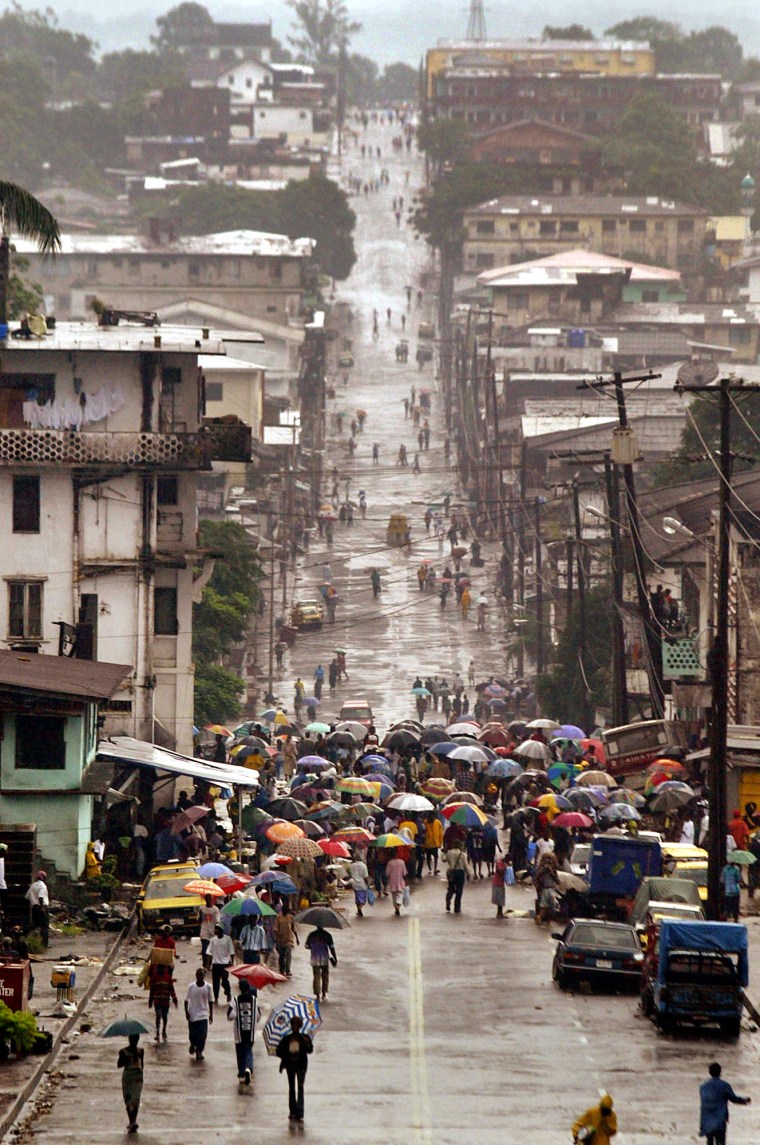Across the street from where I grew up was an old lady who lived hidden in a virtual forest of plants and trees surrounding her cassava patch. People were afraid to go in there. But not my grandmother, who was a frequent visitor.
Our grandmother, our primary caregiver, was engaged with various traditional societies. So, growing up in Liberia, we met people who dressed differently, walked differently and ate differently. But we never accompanied our grandmother across the street.
One day, our friends told us that the old lady across the street was actually a witch and that she ate children’s flesh. My sister and I decided that night that we had to tell this neighborhood gossip to our grandmother. She patiently listened to us as we explained that the old woman she was visiting was a terrible witch who ate the flesh of children!
“A stranger who asks questions never loses his way.”
The next morning our grandmother told us, “We’re going to visit the old lady across the street.” We cried and we begged her not to take us, but she looked at us sternly and said in no uncertain terms, “If you don’t come, I will give you the whooping of your lives."
We went.
And we never stopped going until the old lady died.
In my January 2015 address to the United Nations Security Council, I said, “We all live in a world of extreme fear. A world where the joys of our lives have been taken from us. Today we live in a world where freedom of expression is challenged, freedom of speech is challenged. If you are a woman, depending on what part of the world you find yourself, bodily autonomy is a thing of the past. We seem to be going backward instead of forward.”
RELATED: Essay: An America I See in The Distance
In Africa we have more than 2 dozen countries engaged in war. In the Middle East, we have some 270 insurgent groups fighting for different reasons. On one singular day, it is alleged that 250 persons were beheaded in Iraq. In Europe there are 80 militia groups. In Asia, there are some 164 insurgent and militia groups. Each year sees hundreds of terror attacks around the world.
We are slowly losing our common humanity. People are transformed from humans to objects of violence based on the groups that they represent. Our walls and borders –mental and physical – lead to extreme violence between us, leaving no room for humans to cross over, only fear and politics of division to take over.
We have built many borders in our communities, schools—and sadly—religious institutions. The way many of us come to terms with extreme violence is to build our own walls between us and those who look different from us. Waves of fear and false assumptions flood into communities who’ve never interacted.
What good things lie in those new and unknown spaces might just surprise us.
I travel a great deal and based on how I dress, the way I look, and the country I find myself in, I find I’m often judged as a possible migrant. When people see a Muslim person, many will see a possible jihadist. People see young black men and they get afraid because in their mind, and based on the walls they’ve built, they see possible thugs.
In Liberia, we have a saying: “A stranger who asks questions never loses his way.” Each of us has a task to resist—especially now, in this country – the politics of division, discrimination and oppression. Each of us has a task to challenge the status quo that says it’s OK to treat somebody differently because of gender, class or the color of one’s skin. Each of us has a task of lowering the statistics of violence through humane acts of justice in our neighborhoods and beyond our walls.
RELATED: OpEd: Comedy Can Lead to Inclusion in Divided Times
As young children, my sister and I feared an old lady because a community that was too ignorant to cross its invisible walls and borders had cooked up stories about her life, a life they knew nothing about. It took crossing the street from the comfort of our home to know that she was a mother with a daughter who was sick for many years and could barely walk. It took crossing the street for us to know that she had been cheated out of her property, and that living in behind her forested wall was her ultimate protest. It took crossing the street for us to know that she looked forward to having people visit her and that she would share her smallest meal, not thinking about where the next meal would come from.
We would never have known any of this but for the wisdom of our grandmother, who gave us the best lesson anyone can give their children – that of the importance of humility and humanity.
The challenge for each of us is to cross the street. What good things lie in those new and unknown spaces might just surprise us.
Leymah Gbowee was the featured speaker at the 2017 John Paul II Center for Interreligious Understanding international honorary lecture held in New York City. The 2011 Nobel Peace Laureate from Liberia, Ms. Gbowee led the nonviolent movement that brought together Christian and Muslim women to play a pivotal role in ending Liberia's devastating, 14-year civil war. Ms. Gbowee continues global speaking through Peace is Loud, and is Founder and President of the Gbowee Peace Foundation Africa.
